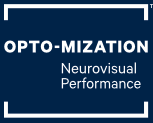Question: I have a ten year old daughter with Dyslexia, would vision therapy be applicable to her? – S.
Hi S,
Thank you for the inquiry. The long and short of it is that vision therapy can only help with dyslexia symptoms if there are deficits in visual function (how the eyes track, work together, or how the brain processes the visual information). In true cases of dyslexia, these vision problems will have been tested for and ruled out (as required by the DSM), and then vision therapy will not help.
The reality though, is that in most cases the ruling out of vision is left at ‘seeing 20/20’, and a physically healthy eye. Problems with how the eyes track, work together, or how the brain processes the incoming information are usually not looked at, and will impact the outcomes of psycho-educational testing.
Dyslexia is a really interesting diagnosis because it is what we call a diagnosis of exclusion, and the label simply means difficulty with reading, spelling and writing.
This means that it has certain signs/symptoms that have no other logical explanation behind them, and it requires that all other avenues be ruled out. This is similar to if you had a car that did not perform well. Before diagnosing ‘car-not-drive-well syndrome’, something you are just stuck with, all other causes such as wheel alignment, and transmission problems would need to be ruled out.
Where this gets tricky, is that before doing the testing for dyslexia, often vision problems related to tracking, or vision processing deficits have not actually been ruled out. The professional diagnosing the dyslexia is working on the premise that the ‘vision is fine’ as that is what they have been told.
I usually see things go three ways when I examine children who have been previously diagnosed with dyslexia.
- There are no vision problems at all, and it is adequately ruled out as it should be for the diagnosis.
- There are vision problems, so it’s hard to tell how much of their problem is vision, and how much is dyslexia. When treated, the dyslexia symptoms improve a lot, but there may still be true dyslexia, diagnosable when all vision problems are corrected.
- There are vision problems, and within 1 year of being treated all the dyslexic symptoms disappear, demonstrating that it was never really dyslexia to begin with.
The nice part about dealing with vision conditions, is that they are objectively measurable. The performance in various areas is either at the normal levels, and allows us to rule out any vision problems, or the performance is reduced and it’s obvious that the vision problems are contributing to, or causing the symptoms associated with dyslexia.
Interestingly enough, in the US, several school boards have actually began to require a developmental vision testing battery be done before any testing for dyslexia, as the results of the testing for dyslexia will be affected by any vision problems.
During an examination, a developmental optometrist can rule in or out any vision problems that could be contributing to your daughters difficulties.
I hope this is helpful for you, and please email me with any follow up questions.
Sincerely, Dr. Cam
